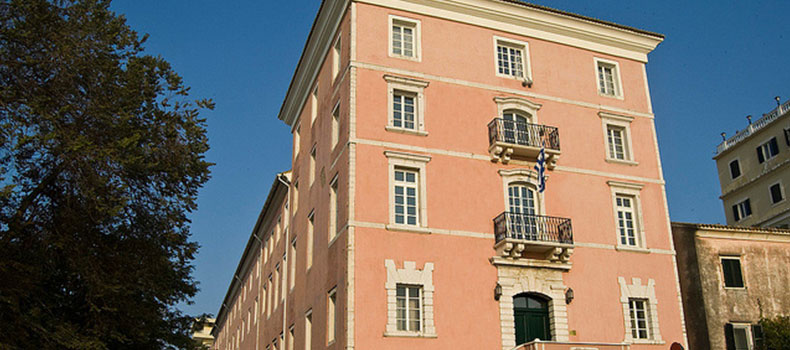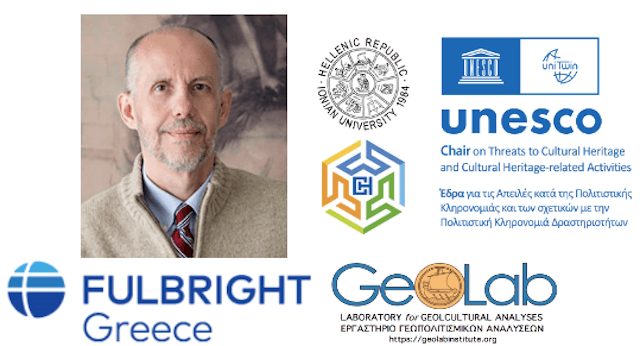Fulbright Program for American Scientists
Professor Alexis Papadopoulos from DePaul University, Chicago is selected as Fulbright scholar for research and Teaching at GeoLAB (DFLTI) and the UNESCO Chair of the Ionian University from 15th Februry 2023.The program is aimed at scientists interested in teaching and/or conducting research in Greece. Applicants must have a PhD or higher degree in their field of study and have secured an affiliation with an institution in Greece. Fellowships are awarded for a period of three to four months and cover a variety of disciplines and professional fields.
Alex Papadopoulos joined the Geography faculty at DePaul University, Chicago, in 1992 and helped transform the Department into a nationally recognized undergraduate program. He has received the Excellence in Teaching Award and the Cortelyou-Lowery Award for Excellence (his College’s senior award for excellence in teaching, research, and service). In 2019 the American Association of Geographers awarded him its highest teaching honor, the Harm de Blij Award for Excellence in Undergraduate Teaching. Alex describes himself as a ‘teacher-scholar.’ His most important work is teaching and mentoring his students and introducing them to ways of knowing through fieldwork and research. As an urban and political geographer, Alex’s scholarship is informed by critical, comparative, and applied approaches to urban geography and planning, geopolitics, heritage/legacy built environments, and geographies of sexual difference. In this work, the changing character of state power speaks to the regulation and transformation of urban space, the political-spatial organization of cities, the construction of urban-ethnic identities, and the framing of privacy in cities in the context of contested performances of sexual difference. His research has explored as diverse topics as Greek statecraft’s entanglements with the geopolitics of difference, urban cultures of resistance and exclusion in post-Tanzimat Istanbul, the emergence of “global” Brussels in the age of European integration, the resuscitation of commercial spaces in post-Soviet Saint Petersburg, and the geographies of same-sex desire in modern Athens. The connective tissue and theoretical affinities of these very different scholarly endeavors are an abiding concern over the urban-spatial implications of state power. Alex’s most recent book publication (with historian Triantafyllos Petridis) is Hellenic Statecraft and the Geopolitics of Difference, Routledge, 2021. They explored the constitution of the modern State and Greek society through ideas and social facts that produced competing ontologies of Hellenism and Hellenicity: ideas about national origins, manifest destiny, cultural hierarchy, exceptionalism, privilege, and difference; social facts expressed as formal or informal norms, processes, and practices, affirming or disrupting the exercise of power and social and territorial control. Difference becomes the crucible upon which institutional actors and subjects sort their relationship to state, nation, and liberty. Accepting that difference exists in the state enables subaltern communities to claim a place in politics and engage in contestatory politics. Alex is currently completing the co-authored/co-edited collection (with geographers LaToya Eaves and Heidi J Nast) titled Spatial Futures: Difference in the Post-Anthropocene (Palgrave, 2023). The Ionian (Ionio) University has invited Alex to teach and carry out collaborative research on Anthropocene threats to tangible and intangible cultural heritage(s). The project contributes to Ionian’s partnership with UNESCO. His work includes curriculum design, the development and teaching of coursework on spatial methods of threat assessment, research on a threats/risk mitigation spatial model and rubric, and scientific expertise to standing committees that manage the Ionian U - UNESCO ‘threats’ project.





 Child and youth mental health in the WHO European Region
Child and youth mental health in the WHO European Region Press Release - ANTIDOTE
Press Release - ANTIDOTE










